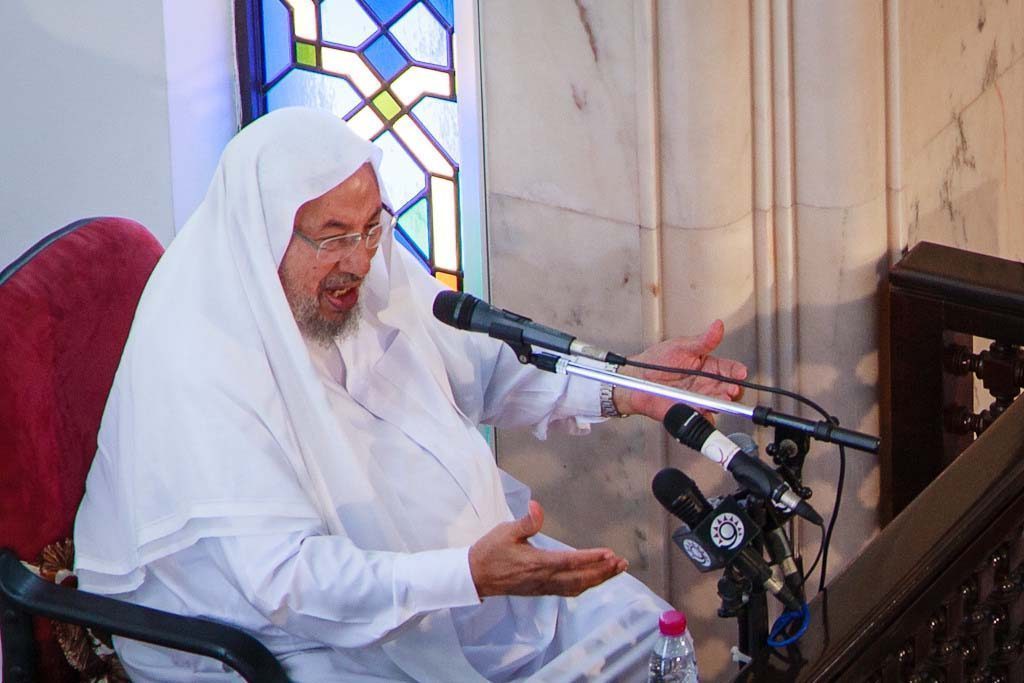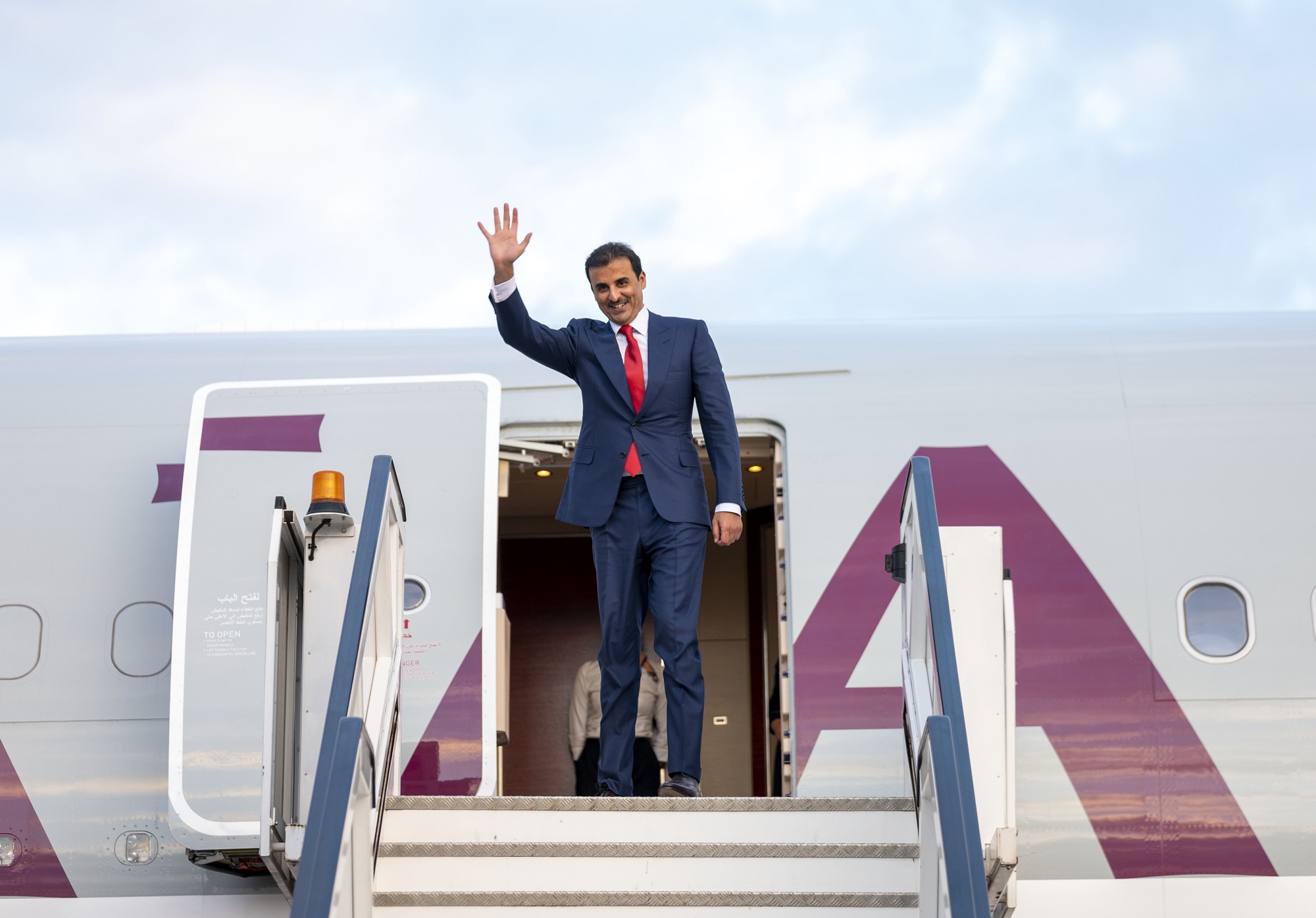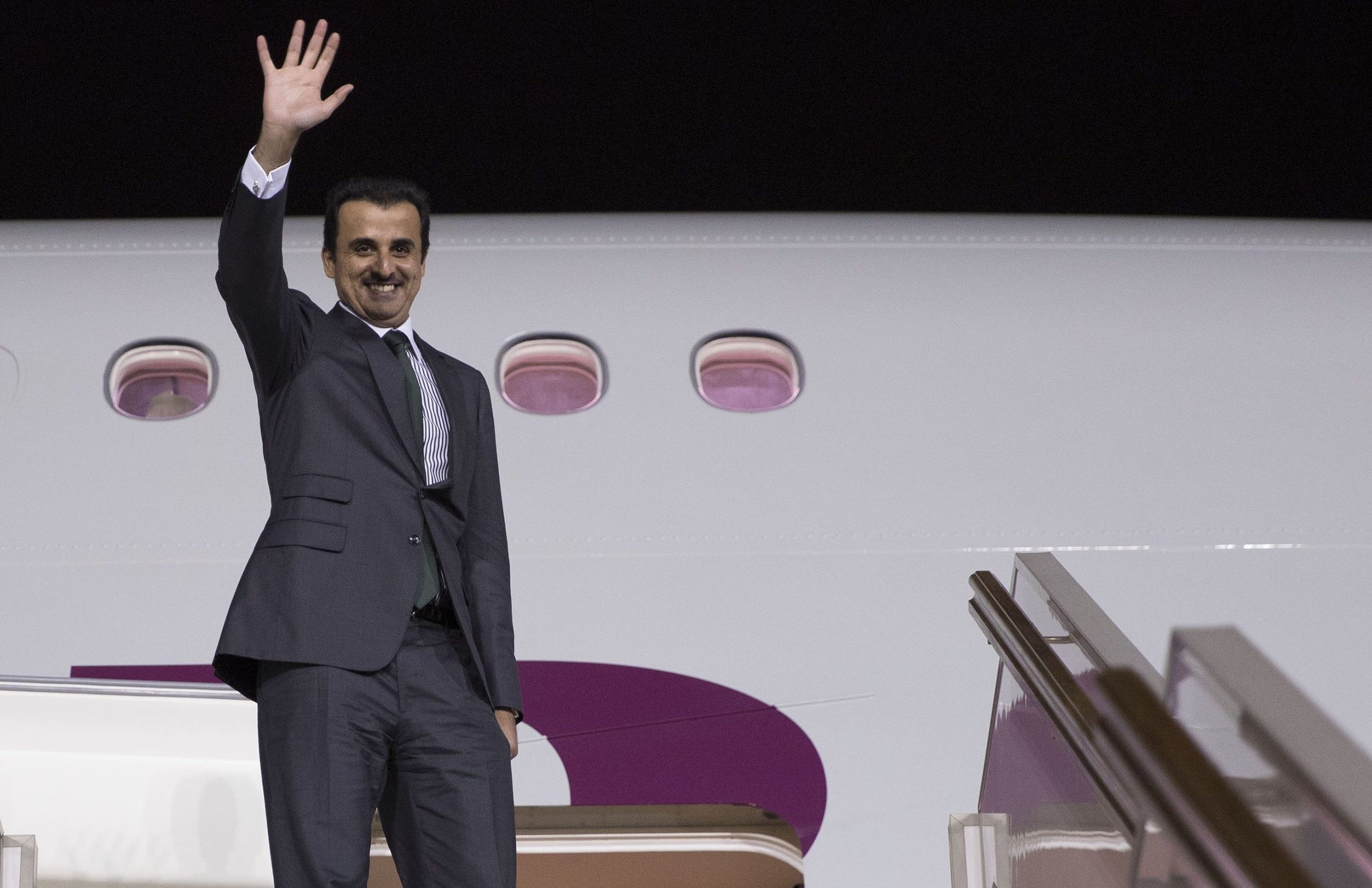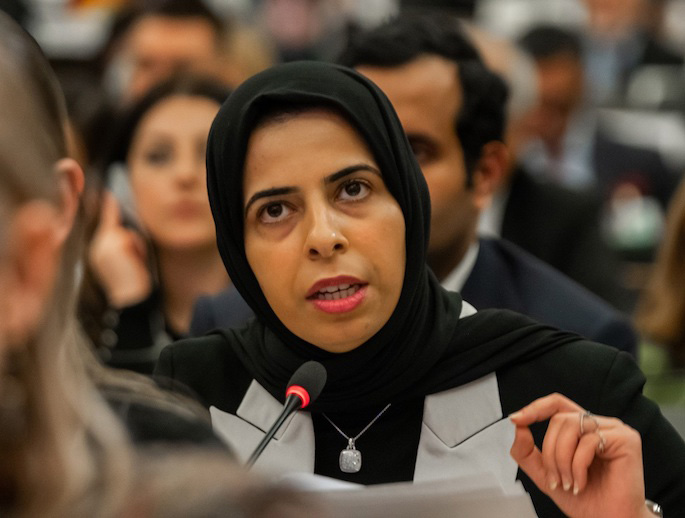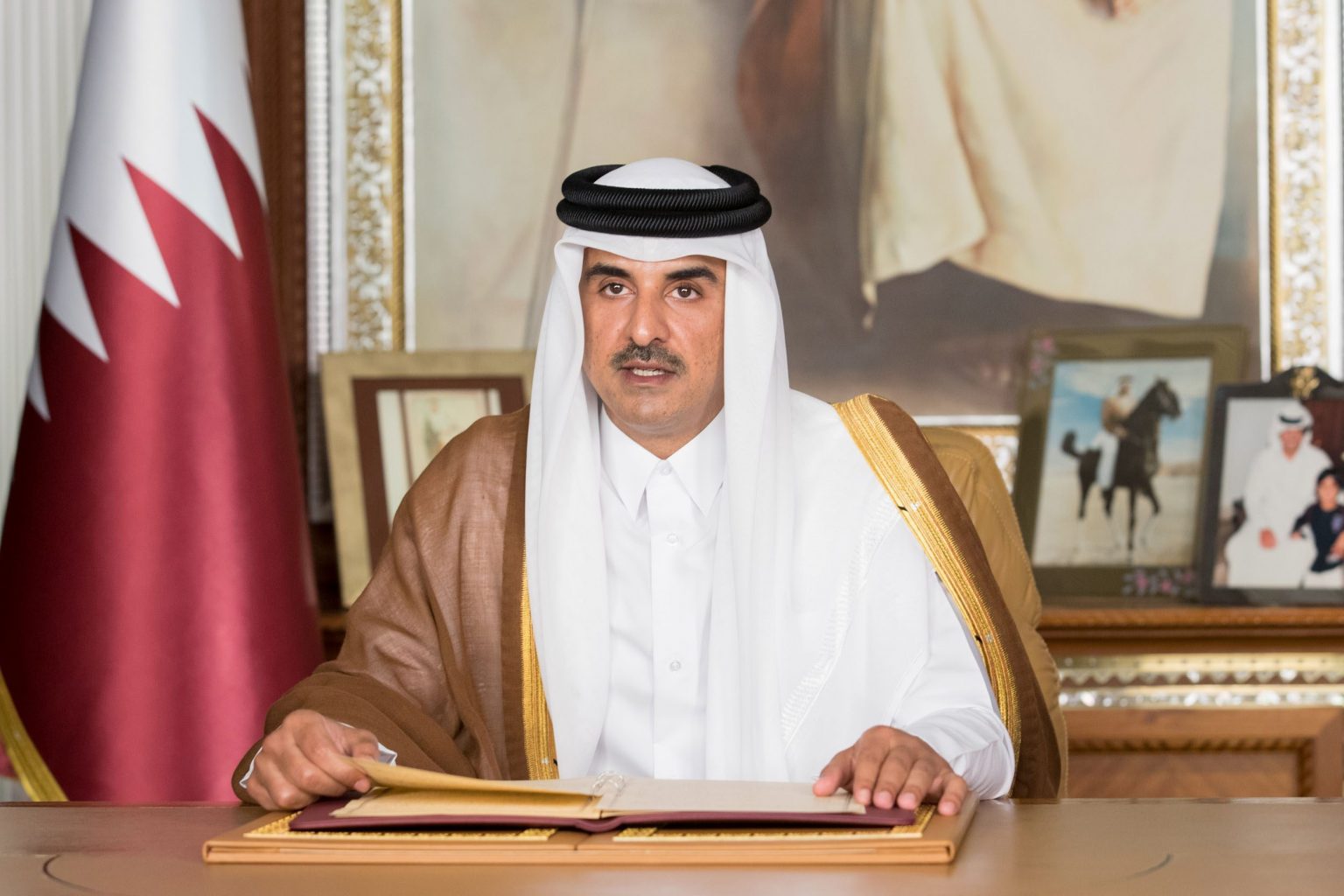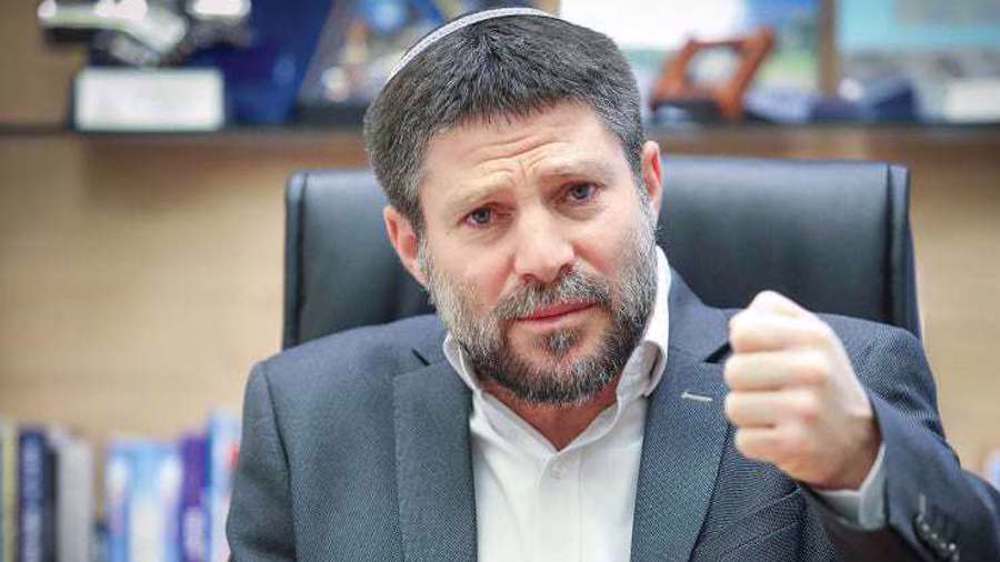
With reporting from Lesley Walker and Riham Sheble
Prominent Doha-based Islamic scholar Sheikh Yusuf Al Qaradawi has said that he is “stunned” by a new warrant for his arrest that was issued by Interpol, seeking to hold him accountable for offenses committed in Egypt years ago.
On Friday, Interpol published a notice on behalf on Egyptian authorities accusing the 88-year-old Al Qaradawi of having a hand in a mass jail break during the 2011 uprising that ousted President Hosni Mubarak, among other crimes.
In a telephone conversation with the Muslim Brotherhood-affiliated TV channel Rab’a this week, the Egyptian-born Al Qaradawi responded to the charges by ridiculing his accusers:
“I don’t know what standards Interpol applies (to its work) … How could I have participated in opening up the prisons and freeing prisoners while living in Qatar? I carry a Qatari passport and use it solely for travel. Have I left Qatar during that period? Have I been to Egypt during that period? They can check and find out that I have not. Or maybe I flew invisibly in the sky.”
Al Qaradawi has been a fierce critic of Egypt’s military government, and has also lashed out at Saudi Arabia and the UAE for supporting the regime.
His heated rhetoric – which has included calling on Saudis “to stand with the Egyptian people against the murders and executioners” – has been an additional irritant in the already frayed relationship between Qatar and Egypt.
Heated history
Qatar was a prominent supporter of Egypt’s Muslim Brotherhood-backed government prior to its 2013 ouster and has since voiced concern over Cairo’s crackdown on supporters of the political organization.
Egypt, in response, summoned Qatar’s ambassador to deliver a diplomatic rebuke.
Egypt has demanded for months that Qatar turn over Al Qaradawi and has also called on Interpol to issue arrest warrants for Muslim Brotherhood members living in Qatar.
It’s not clear what prompted Interpol to issue a so-called “Red Notice,” which is used when the organization is seeking the location and arrest of a wanted individual with the goal of extraditing them to face charges.
As some pointed out on social media, Qaradawi’s whereabouts are well-known:
Interpol issues alert for Egyptian cleric al-Qaradawi Anadolu Agency.
Qaradawi wanted by Egypt. Hint: He's in Qatar. http://t.co/donTxkZWrt— Ziad Asali MD (@ZiadAsali) December 7, 2014
It appears unlikely that the Interpol warrant would have any practical impact unless Al Qaradawi chooses to leave Qatar or the government has a sudden change of attitude towards the cleric, who has lived in the country for decades and is often photographed in the company of the Emir and Father Emir.
Qatar has so far ignored Egypt’s call to deport Al Qaradawi and one legal organization, Fair Trials International, says Interpol member countries can choose not to act on the warrants.
Speaking to Doha News, Michael Stephens, the deputy director of the Royal United Services Institute Qatar, agreed, saying: “There’s lots of ways around this becoming a problem.”
He added that for example, even if authorities were to make a move on Al Qaradawi, extradition proceedings could be dragged out as supporters argue the octogenarian is too frail to be moved. (In his interview yesterday, Al Qaradawi said he suffered from “a number of ailments” and needed assistance to travel.)
Stephens also questioned whether Qatar would gain anything from acquiescing to Egyptian pressure:
“Qatari-Egyptian relations are so bad that it’s unlikely sorting out this mess would result in any significant improvement anyway.”
Thoughts?

